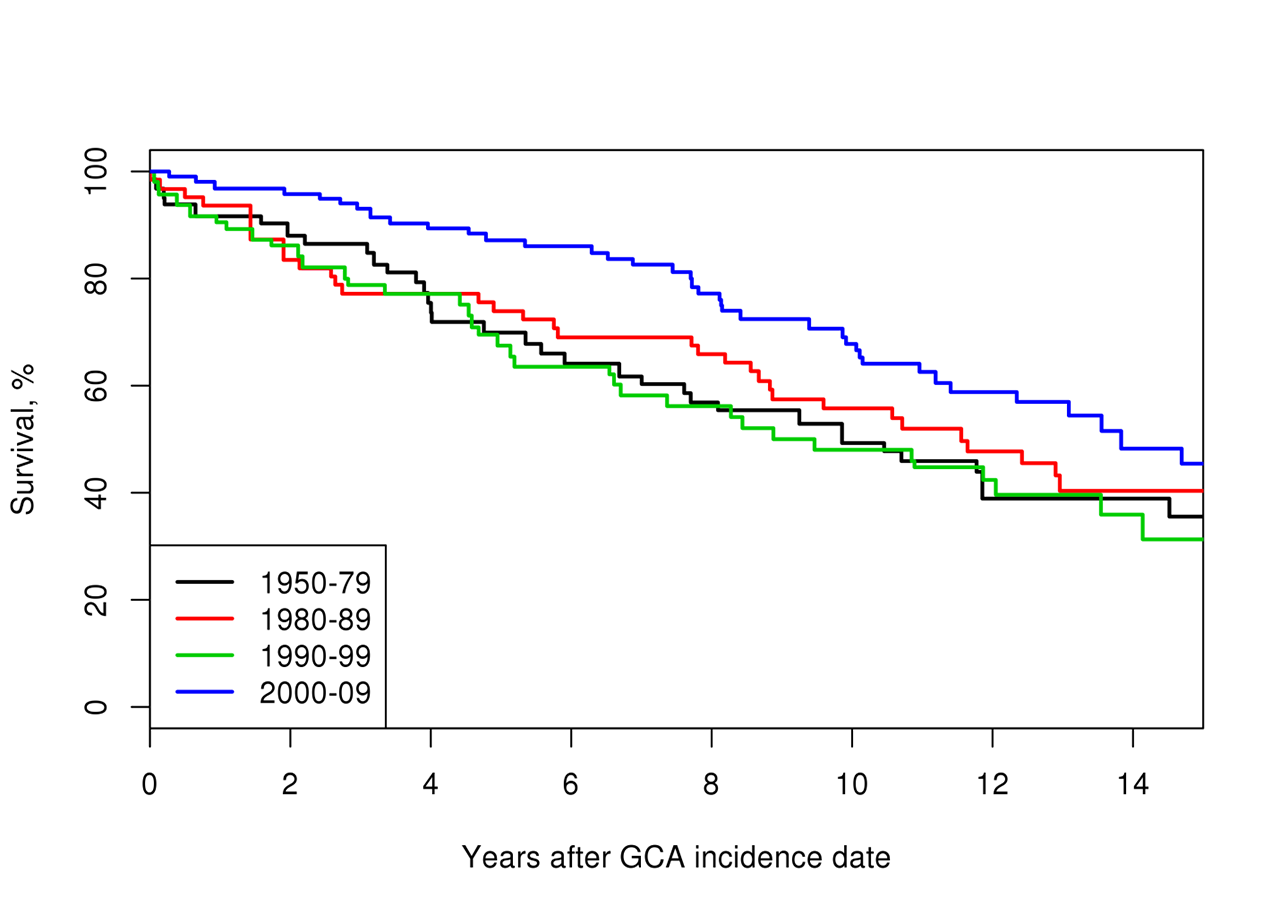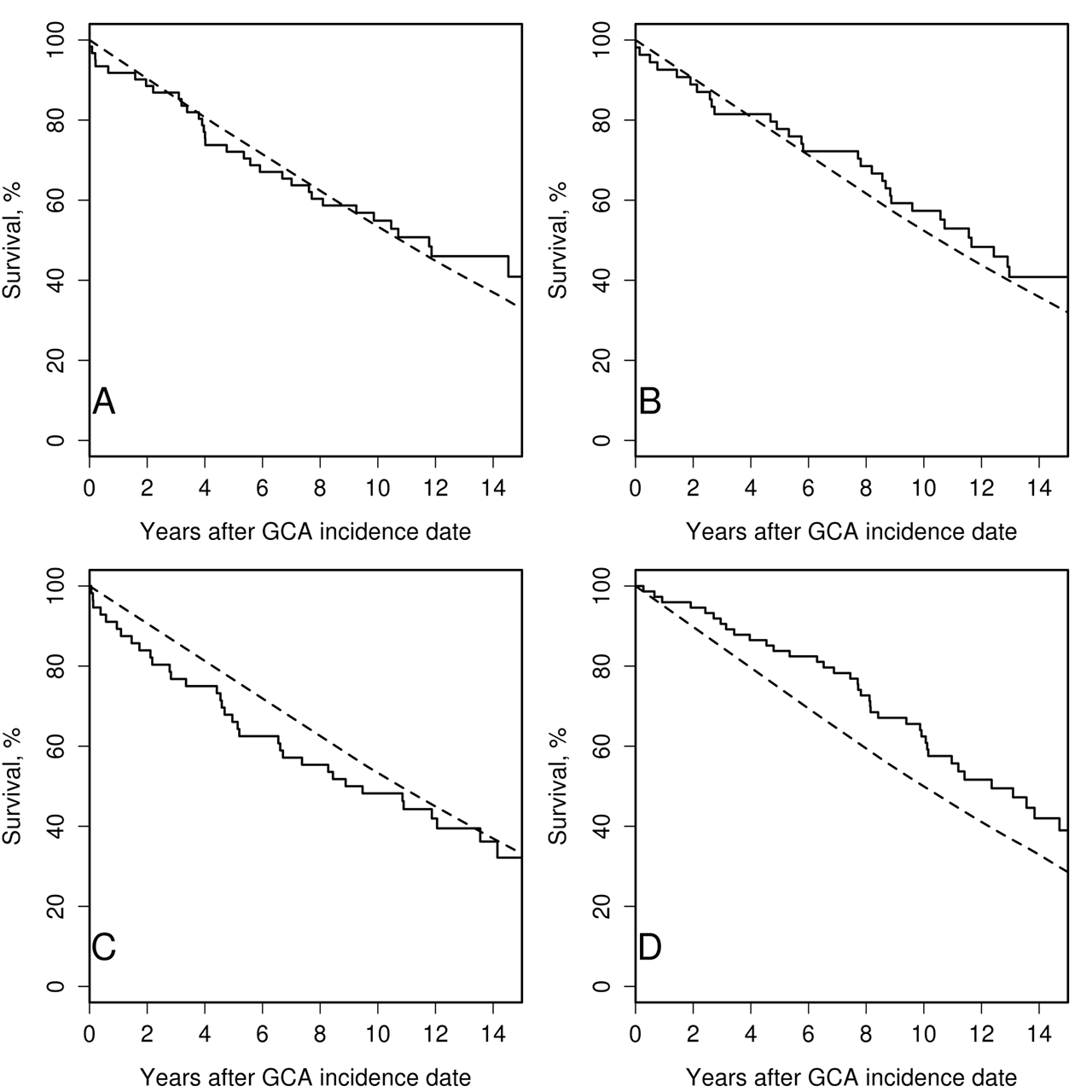Session Information
Date: Tuesday, November 12, 2019
Title: Vasculitis – Non-ANCA-Associated & Related Disorders Poster III: Giant Cell Arteritis
Session Type: Poster Session (Tuesday)
Session Time: 9:00AM-11:00AM
Background/Purpose: To investigate survival trends in patients with giant cell arteritis (GCA) diagnosed over a 60-year period.
Methods: We assembled a population-based incidence cohort of patients with GCA diagnosed between 1950 and 2009 based on American College of Rheumatology 1990 GCA classification criteria. Patients aged ≥ 50 years with elevation of erythrocyte sedimentation rate or C-reactive protein and radiographic evidence of large vessel vasculitis attributed to GCA were also included. Patients were followed until death, last contact, or December 31, 2018. Survival trends were analyzed by grouping patients according to year of GCA diagnosis into the following categories: Group A (years of diagnosis (1950-1979), Group B (1980-1989), Group C (1990-1999) and Group D (2000-2009). Mortality rates were estimated using the Kaplan-Meier method and were compared with expected mortality rates for persons of the same age, sex, and calendar year estimated using Minnesota population life tables.
Results: The study population included 245 incident cases of GCA; 194 (79%) women and 51 (21%) men, with mean age (±SD) 76.2 ± 8.3 years and median follow-up 10.6 years. Based on comparison to Minnesota lifetables, there was no overall difference in survival when comparing the GCA cohort to the general population. The 2, 5 and 10 year survival rates (95% CI) were 89% (86, 93), 76% (70, 81) and 56% (50, 63) respectively with a standardized mortality ratio of 0.99 (0.86, 1.14). The standardized mortality ratios for Groups A, B, C and D were 0.83 (0.57, 1.17) p=0.30; 0.92 (0.63, 1.3) p=0.63; 1.21 (0.85, 1.69) p=0.25 and 0.70 (0.50, 0.95) p=0.02, respectively.
Conclusion: In this population based-cohort of patients with GCA diagnosed over a 60-year period, the survival of patients diagnosed in recent years was significantly better than that of the general population. The explanation for this novel finding is unclear, but likely to be multifactorial. Improved treatment of co-morbidities, mitigation of glucocorticoid toxicity such as osteoporosis, and improved management of aortic complications may be contributing to improved survival in GCA.
To cite this abstract in AMA style:
Garvey T, Crowson C, Koster M, Matteson E, Warrington K. Survival Trends in Giant Cell Arteritis: A Population-based Cohort Study [abstract]. Arthritis Rheumatol. 2019; 71 (suppl 10). https://acrabstracts.org/abstract/survival-trends-in-giant-cell-arteritis-a-population-based-cohort-study/. Accessed .« Back to 2019 ACR/ARP Annual Meeting
ACR Meeting Abstracts - https://acrabstracts.org/abstract/survival-trends-in-giant-cell-arteritis-a-population-based-cohort-study/


